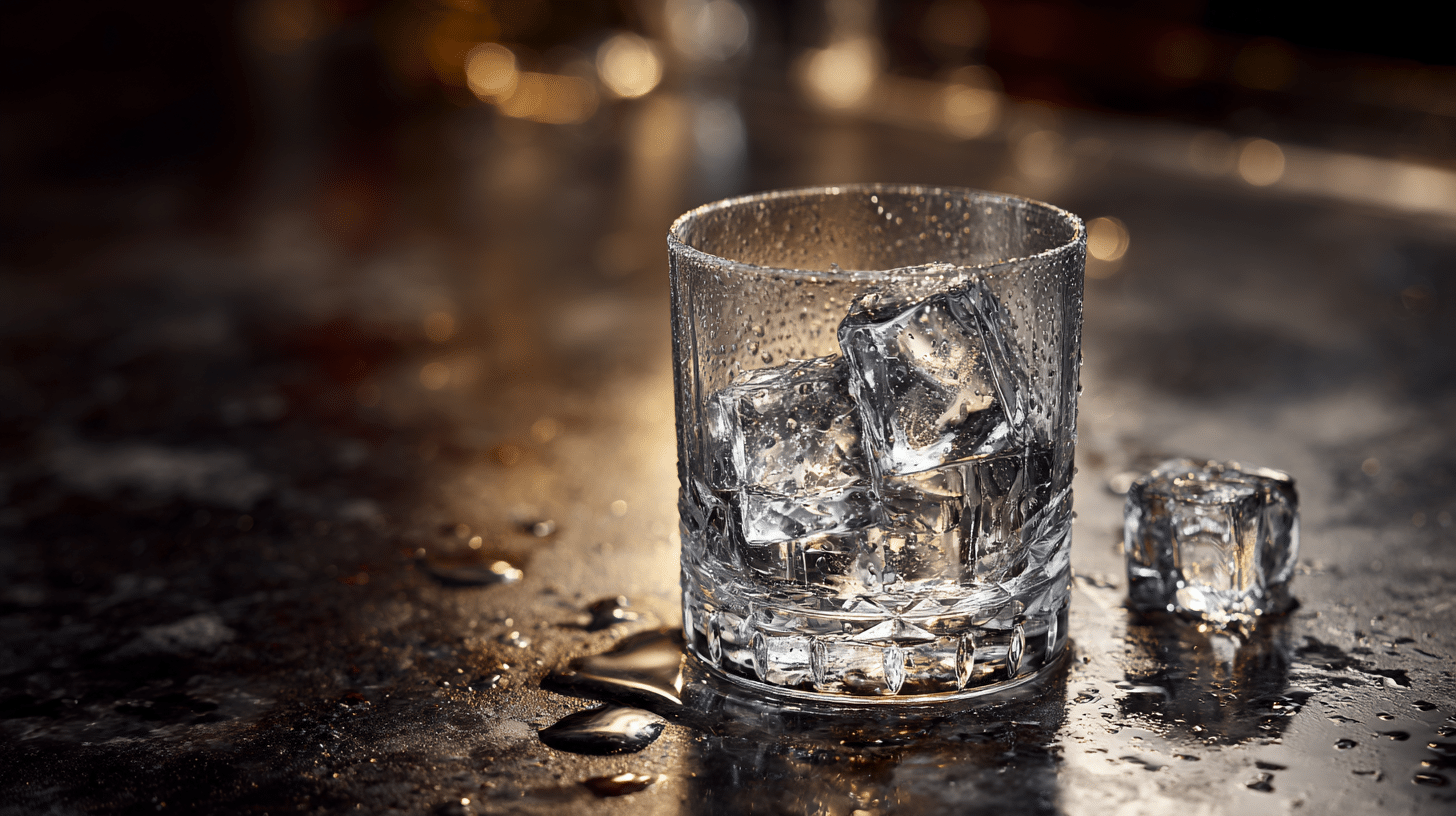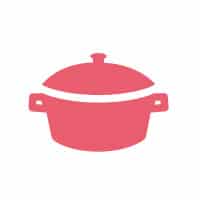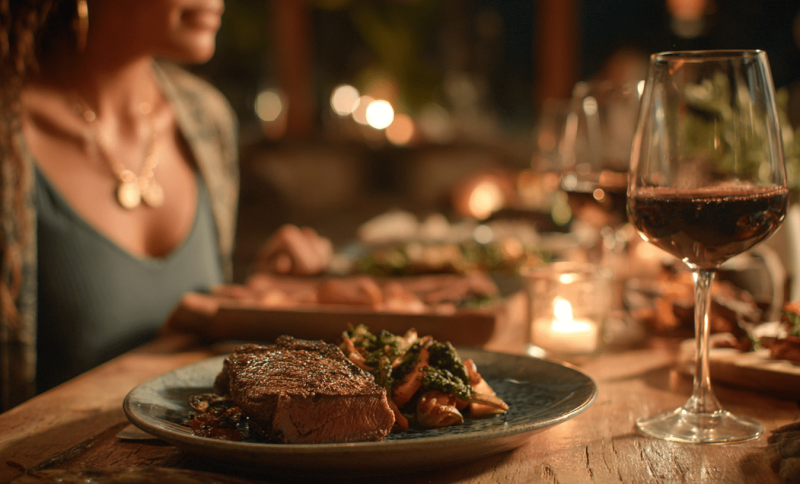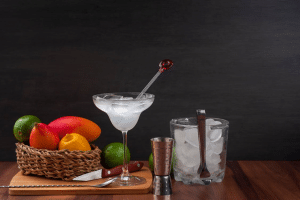Imagine you’re at a dinner party, successfully following your carnivore diet for weeks, when someone offers you a drink.
Your mind races – can you drink alcohol on a carnivore diet without ruining your progress? You’re not alone in this dilemma.
Thousands of carnivore dieters face this exact question daily. The carnivore diet focuses strictly on animal-based foods, leaving many wondering where alcohol fits into this way of eating.
Some say it’s completely off-limits, while others claim certain types are OK in moderation.
The truth lies somewhere in between, and understanding the facts can help you make informed choices that align with your health goals and social life.
Can You Drink Alcohol on a Carnivore Diet?
The relationship between alcohol and carnivore eating isn’t black and white. Some people find ways to include occasional drinks, while others avoid alcohol altogether.
Pure alcohol technically contains no carbs, but the reality is more complex. Most alcoholic drinks have additives, sugars, or come from plant sources that don’t align with carnivore principles.
Many strict carnivore followers choose to skip alcohol entirely, especially during their first few months.
Others adopt a more flexible approach, allowing small amounts of low-carb alcohol on special occasions. The key is understanding how your body responds and whether drinking interferes with your health goals.
How Carbs and Sugar Affect Your Carnivore Success
Your body processes carbs and sugars differently when you’re eating only animal foods. Understanding this relationship helps you make better choices about what you drink.
Most alcoholic drinks contain sugars and carbohydrates from fruits, grains, or added mixers.
Since the carnivore diet obliterates carbs, any sugar intake through alcohol can disrupt the metabolic benefits you’re working toward.
Your body burns typical fat for fuel on a carnivore, but when you drink sugary alcohol, it shifts back to burning those sugars instead.
This disruption can knock you out of fat-burning mode and slow down benefits like weight loss and reduced inflammation.
The cleaner your diet, the more sensitive your body becomes to these disruptions.
What Happens When You Drink on Carnivore

Mixing alcohol with a carnivore lifestyle creates some unique effects you should know about. Your body’s response to alcohol changes significantly when you eliminate all plant foods.
| Effect | Before Carnivore | On Carnivore Diet | Why It Happens |
|---|---|---|---|
| Intoxication Speed | Normal tolerance | Much faster | No carbs to slow absorption |
| Hangover Severity | Manageable | Often worse | Dehydration + electrolyte loss |
| Recovery Time | 12-24 hours | 24-48 hours | Impaired liver processing |
| Fat Burning | Slowed temporarily | Stopped completely | The body prioritizes alcohol |
Alcohol gets processed first by your liver, which means fat burning takes a back seat. This can slow down ketone production and delay the metabolic benefits that many people seek from a carnivore diet.
Many carnivore dieters report getting drunk much faster than before starting the diet.
Fact: On a carnivore diet, your blood alcohol levels can spike 30-50% higher than normal because there are no carbohydrates in your stomach to slow alcohol absorption into your bloodstream.
Your Best Alcohol Options on Carnivore

If you choose to drink occasionally, certain types cause less disruption than others. Picking the right options can minimize interference with your carnivore progress.
| Alcohol Type | Carbs per Serving | Carnivore Compatibility | Notes |
|---|---|---|---|
| Vodka (1.5 oz) | 0g | Best Choice | Choose unflavored only |
| Gin (1.5 oz) | 0g | Best Choice | Pure, no additives |
| Whiskey (1.5 oz) | 0g | Good Choice | Distilled from grains but carb-free |
| Dry Red Wine (5 oz) | 2-4g | Moderate | Occasional use only |
| Light Beer (12 oz) | 5-10g | Avoid | Too many carbs |
| Sweet Cocktail | 15-30g | Never | High sugar content |
1. Clear Spirits Work Best
Vodka stands out as the cleanest choice when it’s unflavored and pure. Gin offers another zero-carb option that mixes well with plain soda water.
Whiskey works for many people, although it’s made from grains; the distillation process removes most carbohydrates and sugars.
Tequila offers a natural, zero-carb option when you opt for pure varieties that are free from added sugars or additives. Rum can work too, but check labels carefully since some brands add sugar back after distillation.
2. Dry Wines as Occasional Treats
Red wines, such as Merlot, Pinot Noir, and Cabernet Sauvignon, typically have low residual carbs when selected from dry varieties.
Dry white wines, such as Chardonnay and Sauvignon Blanc, also tend to have relatively low carbs. Champagne and other dry sparkling wines can work for celebrations.
3. Smart Mixing Choices
Stick to plain water, soda water, or unflavored carbonated water as mixers. These don’t add extra carbs or sugars to your drink. Ice and lime or lemon slices keep things clean and straightforward.
Remember that diluting your drink with more mixer helps slow alcohol absorption and reduces overall impact on your carnivore goals.
Potential Problems Alcohol Can Cause
Several issues can arise when you combine alcohol with strict carnivore eating. Being aware of these helps you decide if occasional drinking is worth the trade-offs.
- Alcohol interferes with your body’s ability to burn fat efficiently
- Causes inflammation, working against the carnivore’s anti-inflammatory benefits
- Triggers cravings for sugary or carb-heavy foods you’ve been avoiding
- Impairs judgment and willpower needed for strict dietary adherence
- Worsens dehydration and electrolyte imbalances common on low-carb diets
- Can knock you out of ketosis and fat-burning mode
- May cause worse hangovers due to a lack of carbs in your system
Fact: Your liver processes alcohol at about 1 drink per hour, but on a carnivore diet, this process can interfere with ketone production for up to 24 hours after drinking.
Alcohol Types to Skip Completely
Some drinks will definitely interfere with your carnivore goals. Avoiding these options helps you stay on track with your health objectives.
Beer ranks as one of the worst choices due to high carb content from grains.
Even light beers contain too many carbs to work with a carnivore diet. Most beers also contain gluten, which many people avoid for digestive reasons.
Sweet cocktails like margaritas, mojitos, and pina coladas are loaded with sugar syrups and fruit juices. Lovely wines, including Moscato and Riesling, as well as dessert wines, often contain too much residual sugar.
Any mixed drinks using tonic water, regular soda, or energy drinks add hidden sugars and carbs. Innovative Strategies for Alcohol Decisions

Making informed choices about drinking helps you balance social situations with health goals. These practical tips can guide your decision-making process.
- Choose pure distilled spirits without flavoring or additives when you do drink.
- Skip sugary mixers and stick to plain water or soda water instead
- Drink slowly and pay attention to how your body responds
- Stay well-hydrated and consider extra electrolytes to minimize hangover effects
- Set clear personal boundaries about when and how much you’ll drink
- Consider complete abstinence during initial carnivore adaptation (first 30-90 days)
- Have a designated driver or safe transportation planned
- Eat adequate protein before drinking to slow absorption
- Limit yourself to 1-2 drinks maximum per occasion
Many people find complete abstinence easier than trying to moderate, especially in the beginning phases of carnivore eating.
The cleaner your diet becomes, the more sensitive your body gets to any disruptions.
Fact: Studies show that people following ketogenic or carnivore diets have reduced alcohol tolerance by up to 50%, meaning half your usual amount can produce the same effects.
Real Experiences from the Carnivore Community
Learning from others’ experiences provides valuable insights for your own choices. These common themes appear frequently in carnivore forums and discussions.
Most people report much faster intoxication and worse hangovers compared to before starting carnivore.
Some find that occasional clear spirits don’t significantly impact their progress, while strict followers recommend complete abstinence during initial adaptation.
Communities like Reddit r/carnivoredietand Reddit r/zerocarb frequently discuss how alcohol triggers cravings and derails commitment.
Many members report needing half their usual amount to feel the same effects. Success stories typically involve either complete abstinence or very occasional, mindful consumption of clean spirits.
Making the Right Choice for Your Health
Alcohol isn’t part of traditional carnivore eating due to its plant origins and metabolic effects. However, life includes social situations where complete abstinence might feel restrictive.
If you choose to drink occasionally, pure spirits and dry wines offer the safest options when consumed in moderation and mindfully.
Staying hydrated, avoiding sugary mixers, and monitoring your body’s responses can help minimize adverse effects.
Remember that your health goals and dietary success should guide these decisions. Pay attention to how alcohol affects your progress, energy levels, and commitment to carnivore eating.
Ready to prioritize your health goals over social drinking pressures?













